I’m no stranger to car troubles, and when my engine started misfiring, I knew it was time to act. After researching, I landed on Delphi ignition coils, and let me tell you, they’re a game-changer.
These coils deliver reliable performance, solid build quality, and a price that won’t break the bank. Whether you’re a weekend wrench-turner or just want your car running smoothly, Delphi coils are a smart pick.
In this article, I’ll share my experience, break down the pros and cons, compare them to other brands, and offer maintenance tips to keep your engine purring.
My Journey With Delphi Ignition Coils
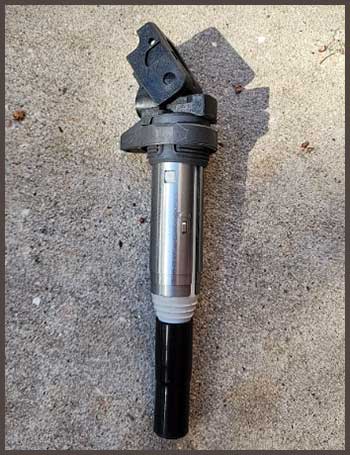
Picture this: I’m cruising down the highway in my 2009 BMW 328i, music blaring, when suddenly the engine stumbles.
It’s that gut-wrenching sputter that makes your heart sink.
The check engine light flickers on, and I know something’s up.
A quick scan with my OBD-II reader spits out a misfire code—cylinder 3. After some troubleshooting, I pinpoint the culprit: a failing ignition coil.
My mechanic buddy suggested Delphi ignition coils, swearing by their reliability and affordability.
Skeptical but desperate, I decided to give them a shot.
I ordered a set of six Delphi coils from an online retailer for about $65 each—way cheaper than the $120 BMW-branded ones at the dealership.
Installation was a breeze; I popped the hood, disconnected the battery, and swapped out the old coils in under an hour.
No drilling, no hacking, just a straightforward plug-and-play job. The moment I fired up the engine, the difference was night and day. The roughness was gone, and my car felt like it had regained its soul.
The idle was smooth, acceleration was crisp, and that pesky check engine light stayed off.
Over the next few months, I put those coils through their paces—city commutes, long road trips, and even some spirited drives through twisty backroads. Not once did they let me down.
The power delivery felt consistent, and my fuel economy even improved slightly, which was a pleasant surprise. I’ve since installed Delphi coils in my wife’s 2010 Toyota Camry, and they’ve been just as reliable.
My experience convinced me that Delphi isn’t just a budget option; it’s a brand that punches above its weight in performance and value. But like anything, they’re not perfect, so let’s break down what makes them shine and where they fall short.
The Good Stuff: Pros of Delphi Ignition Coils
- Built to Last with Smart Engineering
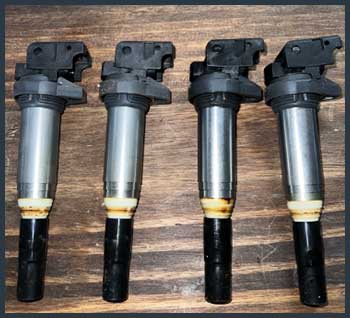
Delphi ignition coils are built like tanks, and I mean that in the best way.
They use high-quality materials that can handle the heat, vibration, and electrical stress of your engine bay.
What impressed me most is their patented Windings Plus technology.
It’s a fancy way of saying they wrap the copper wires evenly around the iron core to reduce stress and vibration.
This means fewer chances of the wires breaking or the insulation cracking, which is a common failure point in lesser coils.
In my BMW, these coils have clocked over 50,000 miles without a hiccup, and they’re still going strong.
- Wallet-Friendly Without Sacrificing Quality
Let’s talk money. Delphi coils typically cost between $60 and $75 each, which is a steal compared to OEM parts from brands like BMW or Toyota, which can run $100 or more. For my six-cylinder engine, that’s a savings of hundreds of dollars.
Yet, you’re not getting cheap knock-offs. These coils are engineered to meet or exceed OEM specs, so you’re getting near-dealer quality at half the price. For budget-conscious folks like me, that’s a huge win.
- Easy Installation for DIYers
If you’ve ever swapped out car parts, you know some jobs can turn into a nightmare. Not with Delphi coils. They come pre-assembled with mounting fasteners and spark plug wires, so you don’t need to be a master mechanic to install them.
I managed the job with basic tools and a YouTube tutorial. The coils fit perfectly in my BMW and Toyota, with OE connectors that snap right in. Even if you’re new to car repairs, you’ll find the process straightforward, saving you labor costs at the shop.
- Reliable Performance Across Conditions
Whether I’m stuck in stop-and-go traffic or bombing down the interstate, Delphi coils deliver consistent spark strength. They’re designed to optimize fuel efficiency and engine performance, and I’ve noticed smoother acceleration and fewer misfires.
Delphi uses a special vacuum technology to prevent gaps in the epoxy, which stops arcing and boosts durability. This means your engine runs cleaner and more efficiently, even in extreme heat or cold.
The Not-So-Good Stuff: Cons of Delphi Ignition Coils
- Durability Can Be Hit or Miss
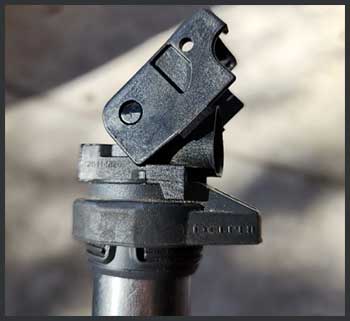
While my Delphi coils have been rock-solid, I’ve read reports from other users who weren’t so lucky.
Some have had coils fail within a year or two, especially in high-stress applications like tuned engines or older vehicles with worn spark plugs.
On forums like Reddit, a few BMW owners mentioned their Delphi coils crapped out around 30,000 miles, which is below the expected 50,000 to 140,000-mile lifespan for quality coils.
I haven’t had this issue, but it’s worth noting that quality control might not be flawless.
- Limited Compatibility for Some Vehicles
Delphi coils work great for popular models like Honda, BMW, Toyota, and Nissan, but they’re not a universal fit. If you drive something less common, like a high-performance Subaru or a vintage Mercedes, you might struggle to find a Delphi coil that matches your engine.
I had to double-check the part number for my wife’s Camry to ensure compatibility, and even then, I saw some reviews complaining about fitment issues with certain models. Always verify your vehicle’s specs before buying.
- Not the Top Dog in High-Performance Builds
If you’re running a heavily modified car with boosted horsepower, Delphi coils might not keep up. They’re designed for stock or mildly tuned engines, but brands like Eldor or NGK are often preferred by enthusiasts pushing their engines to the limit.
My BMW is stock, so Delphi coils are perfect, but if you’re tuning for high boost or running ethanol blends, you might want to look elsewhere for maximum reliability.
Keeping Your Delphi Coils In Top Shape
- Regular Spark Plug Checks
Your ignition coils are only as good as the spark plugs they’re paired with. I learned this the hard way when I ignored my BMW’s plugs for too long, causing a coil to work harder and overheat. Check your spark plugs every 25,000 miles or so for wear, fouling, or carbon buildup.
If they’re worn, replace them with OEM-spec plugs—NGK or Bosch are my go-to brands. Clean plugs mean your coils don’t have to compensate for weak sparks, which extends their life.
- Clean the Coil Body
Dirt, grime, and oil can build up on your ignition coils, especially if you’ve got a leaky valve cover gasket. I make it a habit to inspect my coils every oil change and wipe them down with a clean rag and some electrical cleaner.
This prevents debris from interfering with the coil’s housing or connections. If you notice oil residue, fix the leak ASAP, as it can degrade the coil’s insulation over time.
- Inspect Electrical Connections
Loose or corroded connections can cause misfires or even coil failure. Every few months, I pop the hood and check the wiring harnesses and connectors on my Delphi coils. Look for signs of corrosion, frayed wires, or loose clips.
A dab of dielectric grease on the connectors helps prevent moisture buildup and ensures a solid electrical connection. It’s a small step that makes a big difference.
- Test Voltage Output
To catch problems early, I invested in a multimeter to test my coils’ voltage output periodically. You don’t need to be an electrician—just follow a guide online to measure resistance across the primary and secondary windings.
For my BMW, the primary should read around 0.5 ohms, and the secondary should be in the thousands. If the numbers are off, it’s a sign the coil might be failing. Testing every 20,000 miles gives me peace of mind.
- Avoid Extreme Conditions When Possible
Delphi coils are tough, but extreme heat or moisture can shorten their lifespan. I try to park my car in a garage during scorching summers or heavy rain to protect the engine bay. If you live in a hot climate, consider a heat shield for your engine.
Also, avoid running your coils with worn spark plugs or a failing battery, as these put extra strain on the system.
How Delphi Stacks Up Against The Competition?
- Delphi Vs. Duralast Ignition Coils
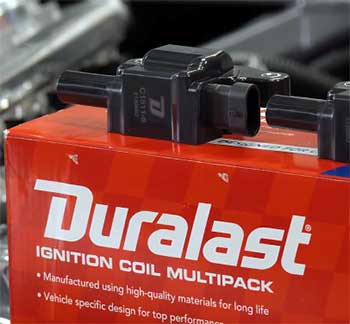
Duralast is a go-to for many at AutoZone, and I gave their coils a try in an old Honda Civic before switching to Delphi.
Priced around $40 to $60, Duralast is cheaper than Delphi’s $60 to $75 range, which is tempting if you’re pinching pennies.
However, my experience with Duralast was underwhelming.
The coils worked fine for about six months, but then I started getting intermittent misfires, and one failed at 15,000 miles.
Delphi’s build quality, with its Windings Plus technology, feels a step above, offering smoother performance and better longevity in my BMW and Toyota.
Duralast’s lower price comes with a trade-off in reliability, making Delphi the better choice for most drivers.
- Delphi Vs. SKP Ignition Coils
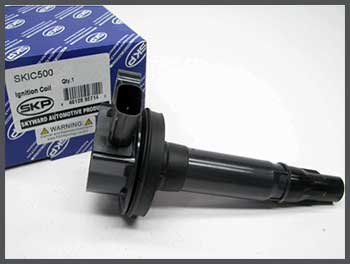
SKP coils are another budget option, often found online for $30 to $50.
I looked into them when shopping for my wife’s Camry but stuck with Delphi after reading mixed reviews.
SKP coils are affordable, but users on forums like Bob Is The Oil Guy report inconsistent quality, with some failing within months.
Delphi’s OEM-grade engineering and three-year warranty gave me more confidence.
While SKP might save you a few bucks upfront, Delphi’s reliability and ease of installation make it worth the extra cost, especially for daily drivers like mine where downtime isn’t an option.
- Delphi Vs. Dragon Fire Ignition Coils
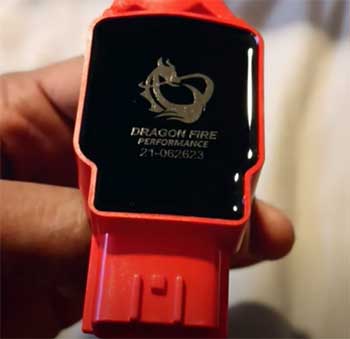
Dragon Fire coils are marketed to performance enthusiasts, promising hotter sparks for better combustion, and they’re priced around $70 to $100.
I was curious about them for my BMW, especially since I flirt with the idea of tuning it someday.
However, reviews suggest Dragon Fire excels in high-performance builds but can be overkill for stock engines.
Delphi’s coils, designed for OEM specs, were a better fit for my unmodified 328i, delivering consistent performance without the premium price.
If you’re running a stock or mildly tuned car, Delphi is more practical, but Dragon Fire might appeal if you’re chasing horsepower.
- Delphi Vs. A-Premium Ignition Coils
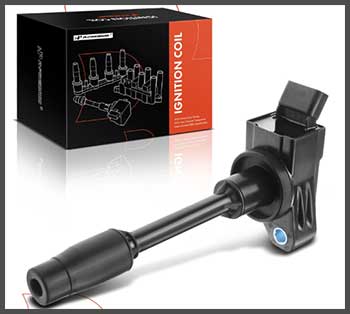
A-Premium is another aftermarket brand, with coils priced around $35 to $55, often found on Amazon.
I considered them for my Camry but was wary of spotty reviews mentioning fitment issues and early failures.
Delphi’s coils, with their plug-and-play design and OEM compatibility, were a safer bet.
A-Premium’s low cost is attractive, but the risk of receiving a dud or dealing with tricky installations didn’t sit well with me.
Delphi’s proven track record and solid warranty made it the clear winner for both my vehicles, offering peace of mind over A-Premium’s hit-or-miss reputation.
Frequently Asked Questions (FAQ)
Choosing the best ignition coil depends on your vehicle and driving needs. For stock engines, Delphi offers a fantastic balance of quality, price, and ease of installation, as I’ve experienced with my BMW and Toyota. Bosch is a top pick for German cars, with unmatched durability. NGK shines for performance builds, while Denso is ideal for Japanese vehicles. Eldor is great for tuned engines but pricier. Check your vehicle’s requirements and read reviews to match the brand to your needs.
Yes, Delphi is an OEM supplier for several automakers, including BMW, GM, and Toyota. My BMW’s original coils were Delphi-branded, though sold under BMW’s logo at a markup. Delphi’s coils are designed to meet OEM specs, making them a direct replacement for many vehicles. Always confirm the part number for your specific model to ensure compatibility.
Some Delphi ignition coils are manufactured in China, as I learned when researching my purchase. However, Delphi’s quality control and engineering standards are consistent regardless of origin. My coils, likely made in China, have performed flawlessly. The brand’s reputation and testing processes outweigh concerns about manufacturing location for most buyers.
Delphi offers a three-year or 36,000-mile warranty on their ignition coils, which gave me confidence when I bought mine. This covers defects in materials or workmanship. Keep your receipt and buy from a reputable retailer, as some users have reported issues with counterfeit coils lacking warranty support. Check with your supplier for specific terms.
Wrapping It Up: Why Delphi Is Worth Your Money?
After months of driving with Delphi ignition coils, I’m sold. They’re reliable, affordable, and easy to install, making them a no-brainer for most drivers. From smooth idles to better fuel economy, they’ve kept my cars running like a dream.
Sure, they’re not perfect for every high-performance build, but for everyday reliability, Delphi delivers. If you’re tired of misfires and want a cost-effective fix, grab a set of Delphi coils and get your engine back in tune.
You won’t regret it.

